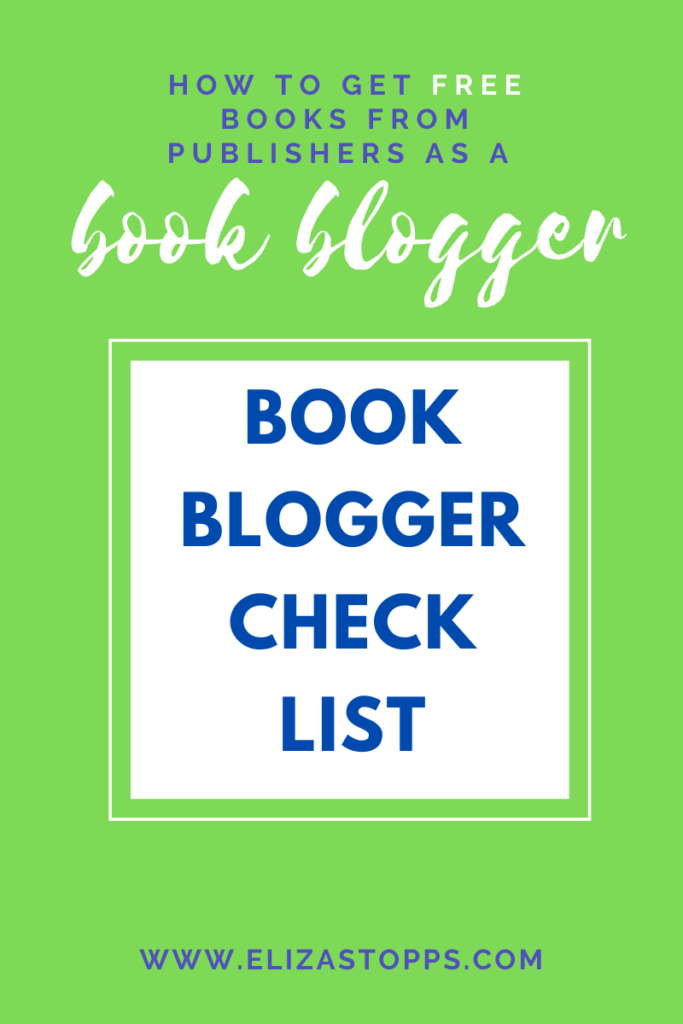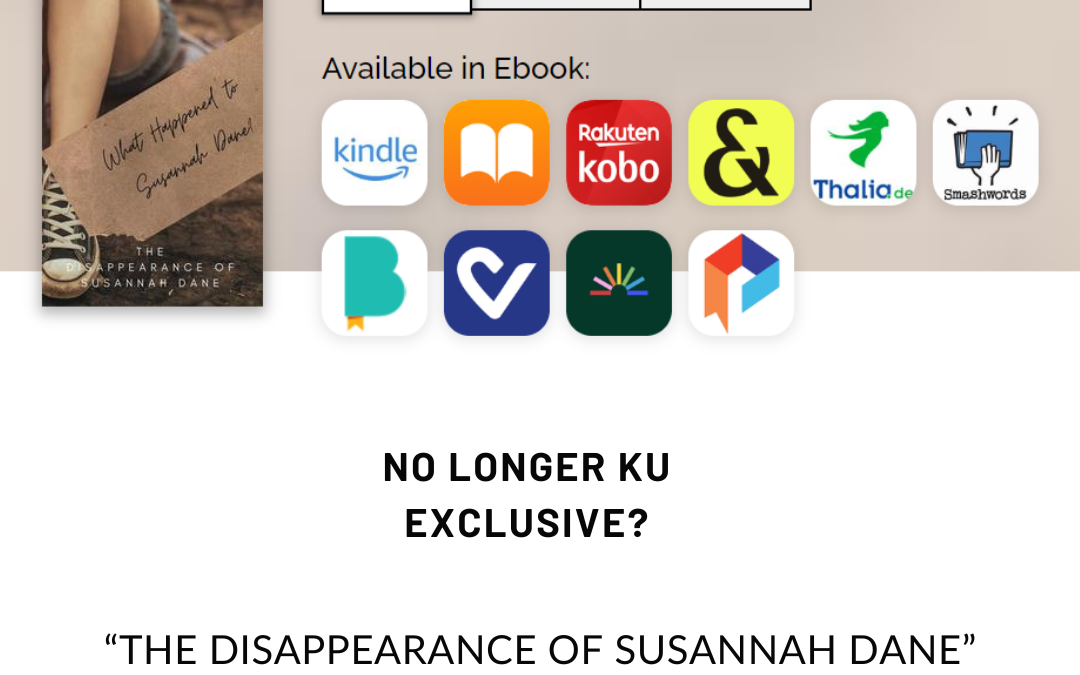
Please note that any links within this post may be affiliate links. This means I earn a commission on qualifying sales at no extra cost to you.
If you’re a new book blogger, you might be wondering how you can get on lists to receive free books from publishers and authors in exchange for a review. There are two main ways that you can find out about these opportunities:
- An author or publisher reaches out to you.
- You reach out to an author or publisher and ask to be included in future opportunities.
Part of my job as a Marketing Manager at FVP was to reach out to bloggers and reviewers for opportunities exactly like this. In this scenario, you could reach out to me and ask if we are looking for more reviewers or you might receive an email from me asking if you’re interested. I am going to share my tips for contacting small press publishers, large publishers, and I give you a website checklist to make sure you are ready to post that review.
Tips For Contacting Small Publishers:
- Look on their website for a list of their employees and reach out to someone on the marketing team, if their information is listed.
- Follow them on social media so you will be the first to know if they post a call for book bloggers and reviewers. They should include information about which person to email or DM to be added to the list.
- Join their newsletter or mailing list. If they are ever looking for bloggers, interns, or even looking to hire, they might tell their mailing list first. This is because their mailing list usually consists of people that already love their company, so it’s a good place to start the search for these things.
Tips For Contacting Large Publishers:
This can be a little harder because they might have multiple branches in many states and countries. In this case, I would suggest:
- Contact an author that you love directly. Maybe they have information about joining a “street team” on their website. You can usually sign up for this and they will send you information.
- Check to see if an author has a promotion website or manager listed on their website. Some authors work with marketing companies that build their own lists and will send you information about new books and opportunities. You can also search around to find these review groups separately from the author.
- Check the publishing website of the branch that you are interested in. Some publishers will have their own review blog that you can sign up to write for.
- Join their mailing list. This works the same for large and small publishers.
So, if you don’t hear back from any of the authors or publishers that you contact, what do you do?
You may want to look at your website and make sure it has a few essential qualities of a book blog that make you more desirable to publishers.


Book Blogger Website Check List:
- Contact Page.
- Do you have a contact page listed on your website? You can use a contact form or list an email directly on your website. I can’t tell you how many times I see bloggers posting on Twitter that they don’t receive any ARCs, but they also don’t have any spot with an email or contact page listed on their blogs! This is essential. Don’t expect publishers to DM you.
- If you’re worried about bots collecting your email for spam purposes, you could always make it more difficult by posting a graphic that has your email listed on it. For someone to email you, they would have to type your email separately. This can help filter out spam, but it can also prevent you from getting as many emails from publishers if you have a very complicated email that might be mistyped.
- Review Policy.
- Read over your review policy with an objective point of view. Do you sound like you want to receive books, or does it seem like you’re sick of receiving emails about it? If your review policy is jaded, you will receive fewer opportunities because no one wants to upset you.
- Did you forget to remove a bolded sentence from last year that states that you are not currently accepting reviews? Make sure you aren’t accidentally shooing authors and publishers away by telling them not to contact you.
- Payment Policy.
- If you are a book blogger and you state explicitly on your website that you will not post reviews for books without being paid, you can expect not to have any ethical companies reach out to you. Publishers and/or authors cannot purchase reviews from readers. This is a violation of Amazon’s review policy. The only exception to this is, I believe, large book reviewers such as Kirkus reviews, where you pay a fee to have your book read. If you are a small blogger, you cannot ask to be paid for the review.
- More on this: You’re putting in a lot of hard work? Shouldn’t you get paid for it?
- Overall Blog Appeal.
- You don’t have to spend a lot of money to make your review blog look fantastic. It’s better to have no banner on your blog than one that is very blurry or pixelated. You can use free layouts from websites like WordPress and that’s completely fine. However, if your blog is full of ill-fitting graphics and the font is difficult to read, you won’t get as many requests.
Be Friendly and Professional
One more essential skill that a book blogger should have is email etiquette. I can’t count how many bloggers that I have tried to correspond with that get upset at the idea that they won’t receive a paycheck along with the free book or that receive a free book and never post a review at all. If you want to continue to blog for a company, you should be polite and use common sense in your email. If you wouldn’t say it to a coworker or superior in the workplace, don’t say it in an email.
This is not to say that you have to agree to everything a publisher or author requests. You must advocate for yourself and be honest about whether you can meet a deadline for a book review. This helps everyone to have realistic expectations about the agreement. Don’t agree to have a book review up in a month if you also have to attend four weddings that week.
Email etiquette doesn’t come easily to everyone and that is okay. Sometimes there are cultural differences, language barriers, lack of communication, or false expectations that can come between two people in an interview. No matter what the reason, it’s important to be respectful when emailing professionals about collaborations. If you aren’t sure about how to communicate on a business level, consider doing some research into the basics of email etiquette.
What If I Can’t Post the Review On Time?
So, can you tell a publisher that you won’t be able to review the book until a month after release and use smiley emojis in your responses? Absolutely. Publishers, marketers, and authors are all just people. Every email doesn’t have to formal to be friendly. You can always be upfront about when you can read a book and most of the time, that will be completely okay.
What other aspects do marketers have to take into consideration before sending you free merchandise? Well, if you post highly controversial opinions, you might not be chosen to receive a company’s product. Social media followers also matter to some extent. Bloggers with a larger reach will be more likely to receive paperback copies of books. If you’re brand new, you might start with receiving eBooks for a little while. Don’t be discouraged by this! Every release has a limited number of ARCs or paperbacks to give away. If you post a review for your eBook promptly, you will be more likely to receive paperbacks in the future. This works the same way if you have a large following and receive a paperback, only to never post about it. You will probably not be included in future listings if you break agreements.
One Last Thing: Consider Review Policies
You also want to make sure that you are following the review policy for any website that you post reviews to. Unless you are an editorial service, authors and publishers cannot pay you for reviews. That doesn’t mean they can’t send you the book in eBook or paperback formats. It just means you will be putting in some work and won’t be getting a check out of it. This makes sure that reviews are not biased. This view on whether paid reviews can be honest might change, but as of this posting, you can’t be paid for reviews on Amazon.
As an author, I am constantly running into people that are willing to review my books for a fee. Not only can I not accept this, I don’t really want to because they rarely have an actual website where the reviews are posted. Many of these people are preying upon desperate authors that need reviews and are willing to pay money for them. It could be devastating for an author to pay for a review and still not receive one. It would be challenging to distinguish yourself from all of the fake review sites and you won’t be able to post the reviews on most legitimate markets.
Most publishers won’t even consider the idea of paying a book blogger. Both authors and publishers will pay for influencers and bloggers to post photos of their books on social media. That isn’t the same as posting a review on Amazon.
If you want to double check that your blog does not conflict with Amazon Review Policy guidelines, you can read them here: https://www.amazon.com/gp/help/customer/display.html?nodeId=201929730
You can get free blogging tips delivered right into your inbox with my newsletter! Sign up for freebies & more.
This post was proofread by Grammarly





You can also embed free books into your blog using a free WordPress plugin or, if your blog is not WordPress using embed code. Full details are here: https://www.whitedovebooks.co.uk/book-bloggers-plugin/